What Are the Different Types of Concrete Trowels And How Are They Used?
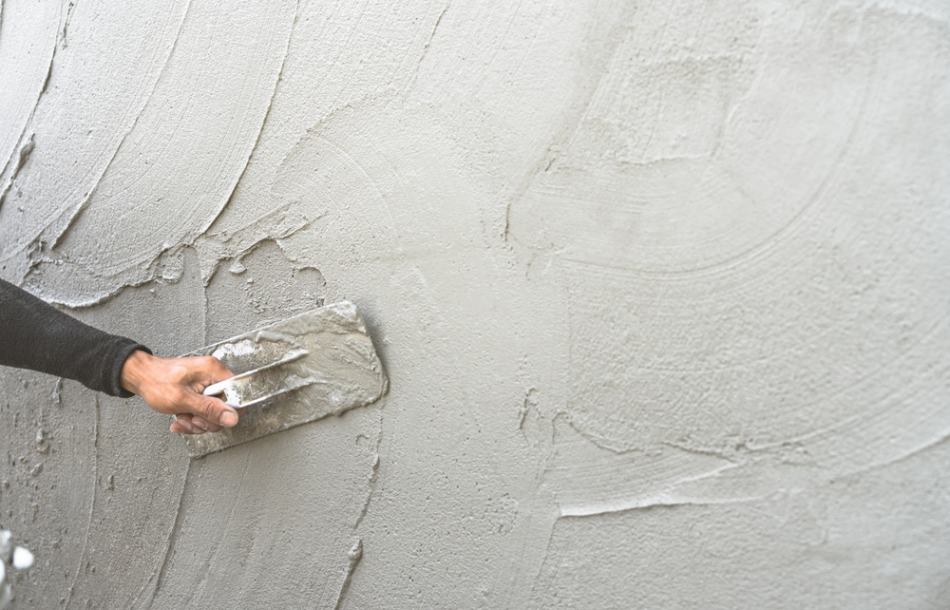
Just like shovels, brooms, bullfloats and screeds, concrete trowels play an important role in the laying and smoothing of fresh concrete. However, these small hand tools come in quite a few varieties, and you’ll want to make sure you have the right one on hand for the job. Select the wrong one and it’ll be quite hard to achieve the right finish.
Australian Slate-Crete Supplies has a great range of high-quality trowels for sale, and we’re here to help you choose the right one for your next concreting project. Whether you’re a seasoned concreting professional or brand new to the DIY game, it’s important you have the right one for the job at hand.
Let’s explore our concrete trowel types now!
What are Concrete Trowels?
Concrete trowels are tools used towards the end of the concreting process to give your concrete a smooth finish that is perfectly level and free from air bubbles. They can vary in material, size and shape, but all will serve the same function.
Certain types will be better for use over larger areas, while others can be used by hand for tight corners and small areas. No matter the size or parameters of your project, there’s probably a trowel designed for it!
Types of Concrete Trowels
You can divide concrete trowels into two types–the smaller ones used by hand, and larger concrete trowelling machines.
Hand Trowels
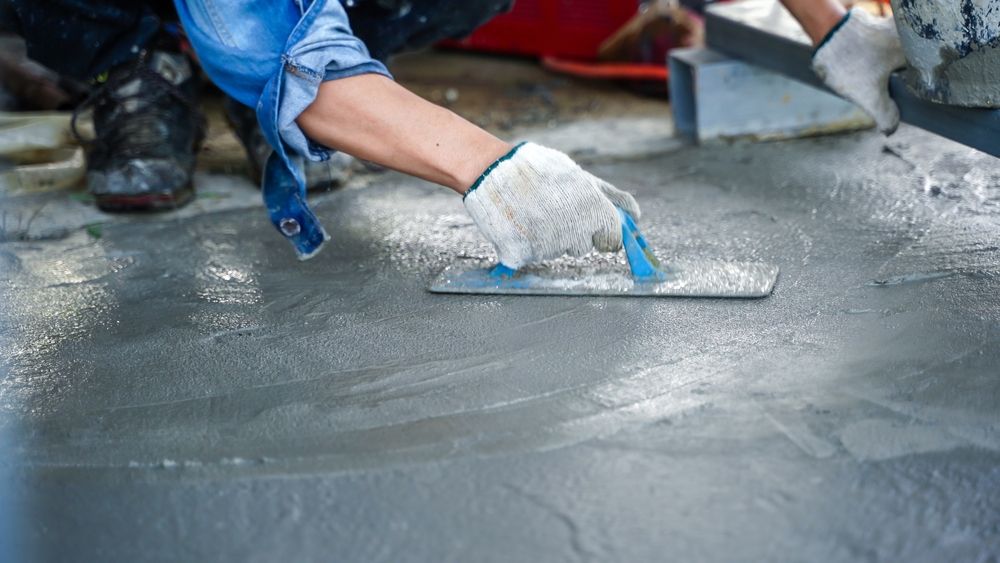
Hand trowels are small and easy to work with, allowing the worker to exert absolute control over the angles and power that the trowel is being subject to. These trowels have a flat metal base with either a flat or a pointed tip, usually made from stainless steel, carbon steel or blue steel, with an ergonomically-designed handle that is easy to use for extended periods of time.
Hand trowels also come in a range of different sizes. You may like to have a few different sized-trowels in your arsenal for various projects, as a large one will make bigger jobs much easier.
Here are some of the types of hand trowels you’ll find at Australian Slate-Crete Supplies:
Finishing trowel
These trowels have straight, sharp edges and are used for finishing flat concrete projects, like slabs, pathways and floors. Their squared edges allow them to be pushed right to the edge of your slab so you can make neat edges against walls.
Pool trowel
Unlike finishing trowels, pool trowels have rounded edges that help them smooth and flatten cursed concrete surfaces like archways, sculptures and, you guessed it, pools. Using a finishing trowel for these surfaces will leave you with undesirable lines, so make sure to choose a pool trowel for that silky-smooth finish you need!
You can find out more about the differences between these tools in our blog, Pool Trowel vs. Finishing Trowel: What’s the Difference?
Trowel Machines
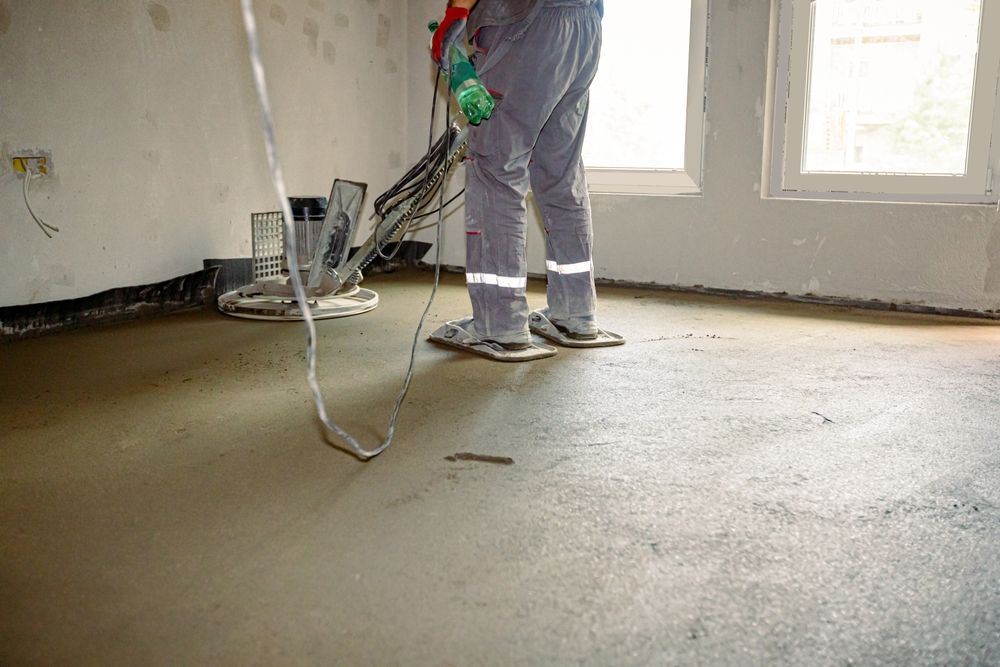
Sometimes known as ‘power trowels’, trowel machines are made for use by professionals who need to trowel large, flat areas quickly. They work using rotor blades that, as you move the machine across the surface, will smooth and flatten the concrete.
Walk-Behind Trowels
These types of trowel machines are operated by a technician who walks behind the power trowel and pushes it along the surface of the concrete. The operator holds onto the handle to steer the trowel, and this control makes them particularly useful for going around tight corners or objects like columns.
Ride-On Trowels
Much like a ride-on lawnmower, the operator of a ride-on power trowel will be sitting on the top of the machine, usually between the two rotors. They will use levers to control the trowel as it moves. Ride-on power trowels can cover areas much faster than walk behind ones, making them better suited for larger spaces. However, they are also more expensive!
What Other Concreting Tools Can Be Used In Conjunction With Trowels?
To create the perfect concrete slab or structure, you’ll need much more than just a trowel. Luckily for you, you can find almost everything you need at Australian Slate-Crete Supplies! Let’s explore some of the other important types of concreting tools you can find in our Melbourne store:
- Wheelbarrows and shovels: You’ll want to begin with a sturdy wheelbarrow to transport your concrete, then a shovel to remove it and loosely spread it across your work area. Look for wheelbarrows and shovels that are powder coated so they are easy to clean.
- Rakes and brooms: Concrete rakes are solid, unlike their garden counterparts, and are used to spread your fresh concrete evenly across the work surface. Concrete brooms have stiff, easy to clean bristles and are used to create a ‘broom finish’ on concrete–that is, a textured and lined look that also acts as grip.
- Bullfloats and screeds: ‘Screeding’ concrete is used to make your fresh concrete perfectly level. In fact, some screeds even come with a spirit level built in! Once it has been screeded, use a bullfloat to level, compact and remove any air bubbles from your concrete.
- Fresnos and edgers: You can use a fresno to better seal your concrete’s surface after going over it with a bullfloat, while an edger is used to create smooth, rounded edges on the sides of your slab.
- Groovers: Concrete will always crack as it dries, but using a groover can help you control where these cracks will form! Choose from hand groovers or walking groovers for this vital task.
Having the right concrete tools can make pouring and smoothing your project’s surface so much easier. And a tip from the professionals: always keep your hand tools clean! As you can imagine, trying to scrape dried concrete off your hand tools is much more difficult than taking a bit of time to wipe them clean straight after use.
Make sure to read our blog on 8 Hand Tools Melbourne Concreters Need To Have if you’re starting from scratch and want to build a robust concreting tool collection.
FAQs About Concrete Trowels in Melbourne
1. What is the difference between a float and a trowel?
Floats tend to be perfectly rectangular, while trowels often have a pointed or curved end to help with finishing. When it comes to how they are actually used, a flat will be used to push down any aggregates, smooth out small lumps or fill in pits, and compact the surface. Using a trowel comes after, and creates a dense, hard and perfectly smooth surface.
2. How many times should you trowel concrete?
For the best results, you should trowel your concrete two or three times. After each trowelling, let the concrete harden a little bit before repeating the process. Be aware of the drying time of your concrete so you don’t wait too long between coats–concrete that is indoors will dry slower than concrete that is outdoors in the sun, and humidity can also affect your drying time.
3. What is the best material for a trowel to be made from?
Stainless steel is the most popular material for concrete trowels, as it won’t rust and is reasonably strong. Some people prefer blue steel for its spring (which makes it very useful when it is used to create pool trowels) while others will always go for carbon steel for its superior hardness.
4. Are concrete trowels expensive?
The price of a concrete trowel will usually depend on its type and size. Quality hand trowels tend to cost between $30 to $80, while a walk-behind power trowel will cost you several thousand dollars. Ride-on power trowels will cost upwards of $10,000!
If you have any more questions, please reach out to our friendly team, who will be happy to answer them!
Choose Australian Slate-Crete Supplies For All Your Concreting Hand Tools In Australia
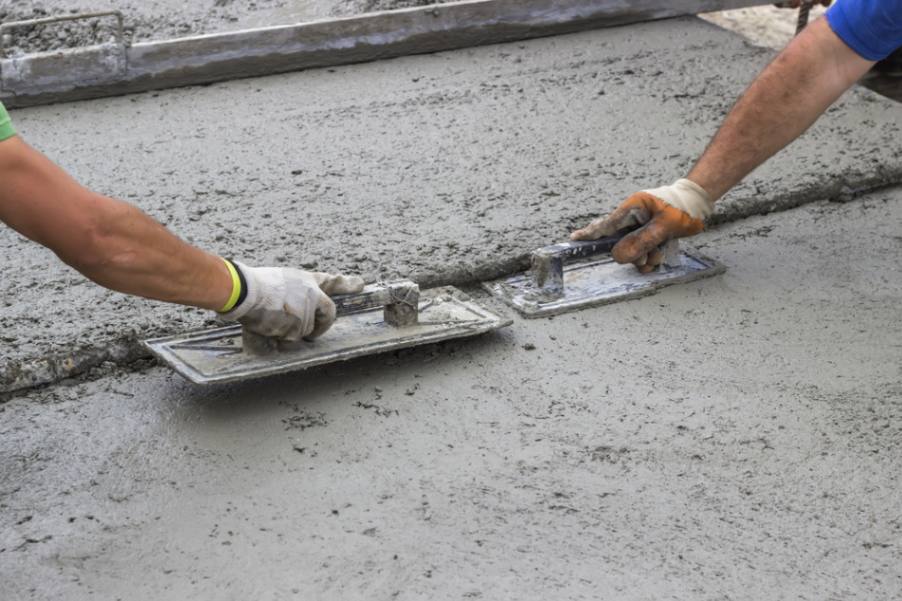
When it comes to finding a great source for hand tools in Melbourne, Australian Slate-Crete Supplies can’t be beat. Our fantastic range of concreting tools makes it easy to find the perfect supplies for your next construction, engineering or passion project.
You can browse our high-quality concrete trowels for sale online, or visit us at our shop in Epping to view the range in person. We also encourage you to reach out if you have any questions regarding our stock and what you’ll need for your concrete.
Call us on 03 9408 7722 or leave us a message online and one of our team will be happy to assist you.
-
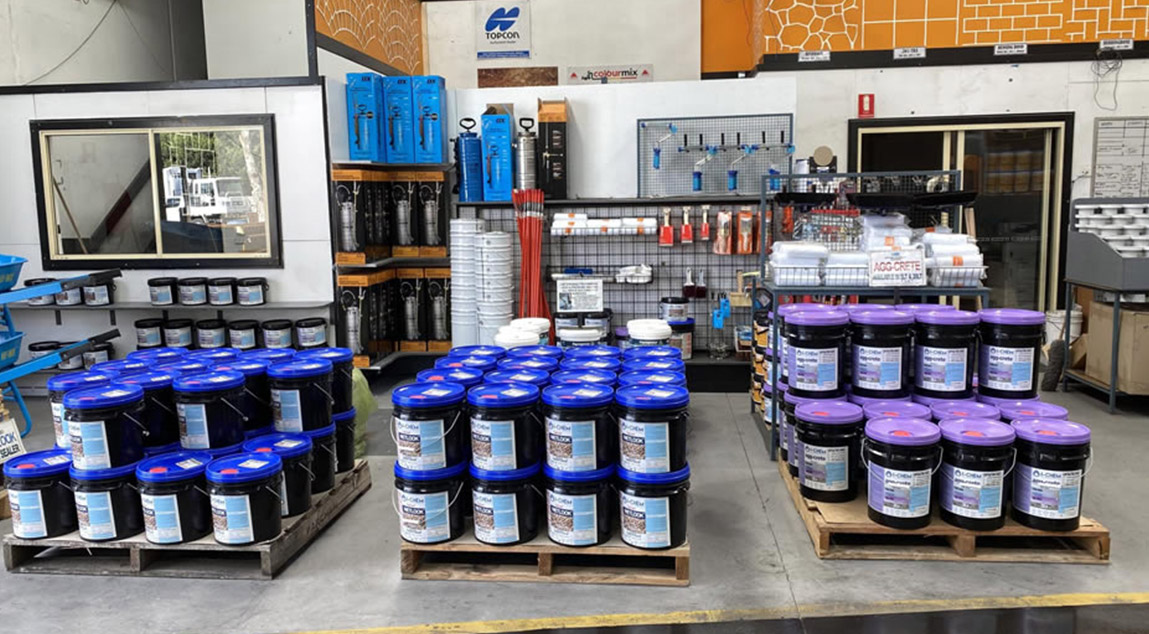 February 4, 2022Sandstone Concrete Stencil
February 4, 2022Sandstone Concrete StencilDo you want to add a touch of luxury and elegance to your concrete projects? If so, then consider using sandstone concrete stencils!
Read More -
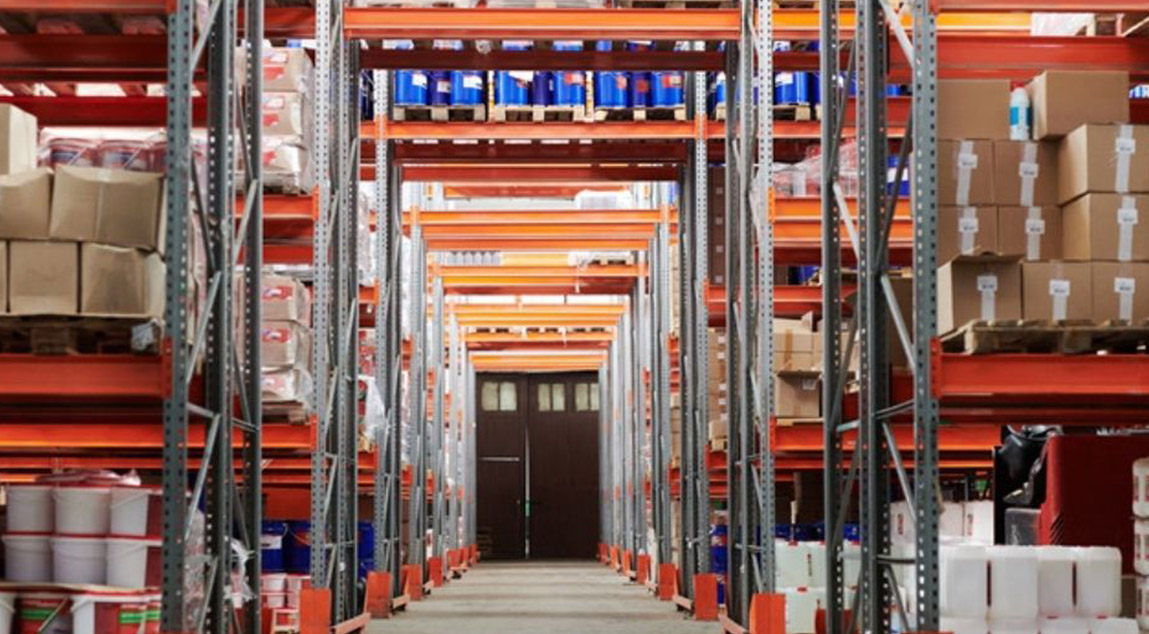 February 4, 2022Gloss Brick Sealer
February 4, 2022Gloss Brick SealerGloss brick sealer is a wonderful material for adding a brilliant shine to your brick slip wall feature.
Read More -
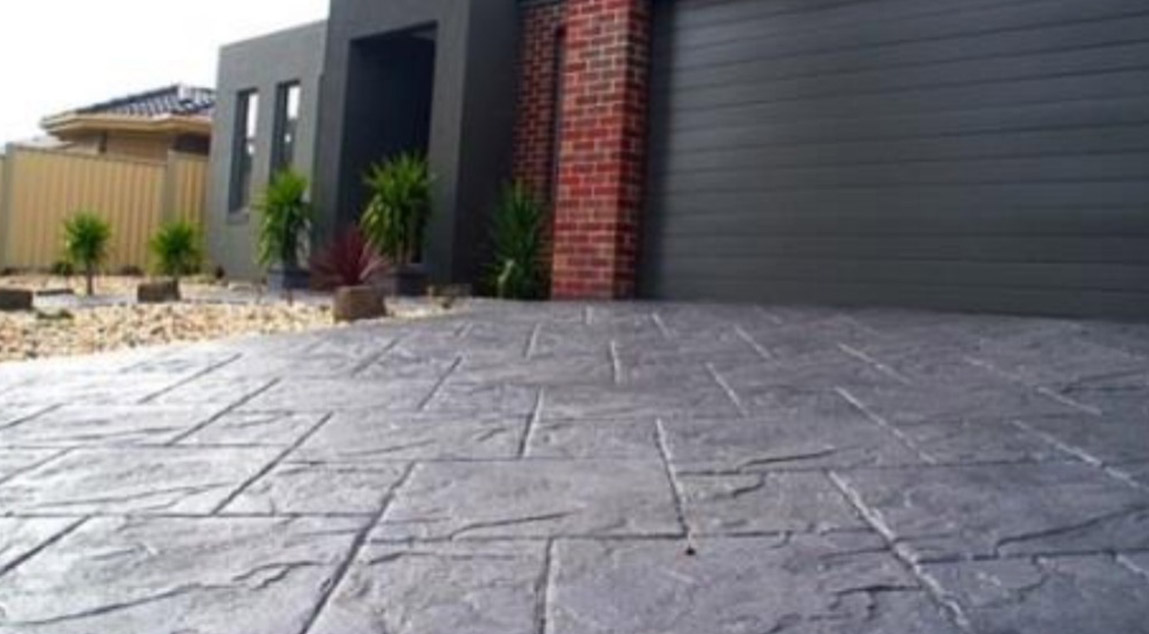 February 4, 2022Bluestone Concrete Sealer
February 4, 2022Bluestone Concrete SealerIn a broad sense, the term “bluestone” is sometimes used to refer to a variety of stones. It’s a marketing term rather than a geological one.
Read More
